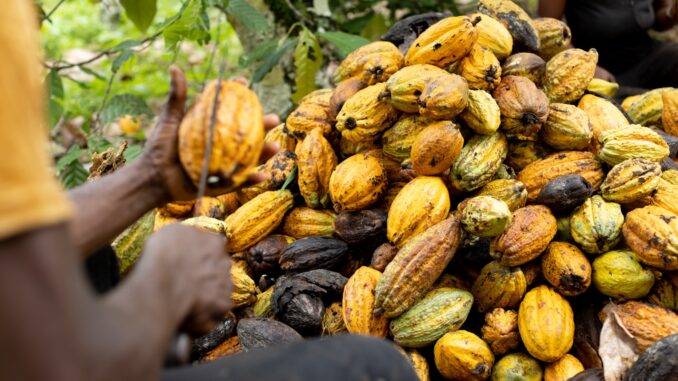
West Africa’s cocoa sector faces mounting challenges despite producing 70 percent of global supply, with smallholder farmers in Nigeria, Ghana, and Côte d’Ivoire trapped in cycles of poverty due to chronic underpayment and limited financing access.
Olasunkanmi Owoyemi, Managing Director at SGC-SunBeth Global Concepts, identified credit access as the primary obstacle preventing sector transformation. “Without financing, farmers can’t invest in better tools, practices, or even proper storage, which impacts quality and income,” Owoyemi explained, highlighting systemic barriers to modernization.
The sector continues grappling with sustainability issues including widespread child labor and gender inequality. SGC addresses these challenges through women’s empowerment programs, educational support, and transparent sourcing initiatives, though progress remains slow across the region.
Contrasting sharply with West Africa’s struggles, East Africa emerges as the continent’s growth powerhouse, projecting 5.9 percent expansion in 2025 against Africa’s overall 4 percent forecast. Ethiopia, Kenya, Rwanda, and Tanzania lead this surge, driven by infrastructure investments, booming technology and fintech sectors, and enhanced regional trade through the African Continental Free Trade Area.
Meanwhile, Central African Republic’s once-thriving coffee industry teeters on collapse. Armed conflict, cross-border smuggling, and absent government support have forced many growers to abandon farms. In towns like Boali and Berbérati, remaining producers persist against overwhelming odds, hoping for international partnerships and peace.
“We grow because we believe coffee can still be a path to dignity,” one farmer stated, embodying resilience amid adversity. Experts warn that without immediate intervention through international aid, institutional reform, and agritech investment, this forgotten sector may disappear entirely.
